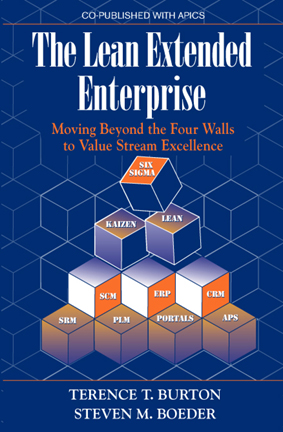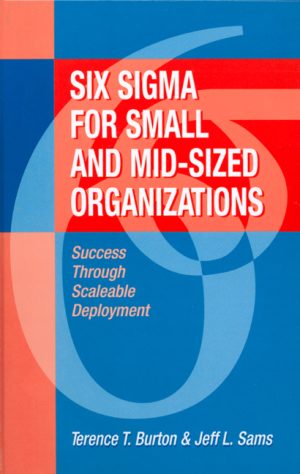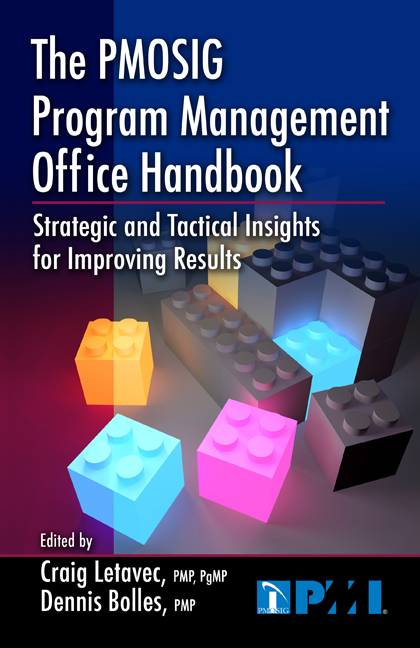The PMOSIG Program Management Office Handbook
$64.95
Strategic and Tactical Insights for Improving ResultsEdited by Craig Letavec and Dennis Bolles (PMI Program Management Office Specific Interest Group’s Vice-Chairs)
Hardcover, 6 x 9, 464 pages
ISBN: 978-1-60427-044-0
November 2010
LEARN & EARN: Get 8.2 PDUs in the PMI skill areas of Technical, Leadership, or Strategic and Business Management Skills
Description
The PMI® Program Management Office Specific Interest Group (PMOSIG), consistent with its vision to be the leading professional community providing innovation and thought leadership in the area of the PMO and related subjects, has created this book to achieve its mission to return direct value to the PMO community. This PMO handbook contains chapters submitted by more than 20 notable authors, subject matter experts, experienced practitioners, and thought leaders with a variety of backgrounds and experiences. These contributions provide insight into practices that successful PMOs have employed to return direct value to the organizations that they serve.
As an edited work, this book provides realistic strategies, methods, insights, and case examples to serve the needs of organizations, PMO practitioners, and the project management community as a whole worldwide. It features practical guidance on a variety of PMO-related topics in the areas of:
-
- PMO governance—Covers roles in organizational governance, portfolio management, and organizational change management
-
- PMO strategic and tactical aspects—Includes examples of how PMOs have participated in the strategic and tactical management as well as in the management of programs and projects to achieve business benefits
-
- PMO services—Covers the development and management of governance policies and procedures, standards, methodologies and processes, education and training programs, tools and templates, PMO technical systems, and program manager, project manager and portfolio assignments
-
- PMO setup and execution—Includes best practices and case studies for successfully aligning new PMOs with business objectives, delivering benefits and ROI, and managing and expanding the PMO’s scope of services
- PMO performance and maturity—Describes the processes used to drive excellence that enhances the PMO’s long-term sustainability as a business function
Key Features
- Provides practical strategies, methods, insights, case studies, and thought leadership to serve the needs of public and private sector organizations of any size
- Presents best practices for successfully aligning PMOs to business strategies and objectives and for delivering planned benefits
- Supplies project, program, and portfolio practitioners with numerous proven tools, techniques, and processes for successfully developing, managing, and sustaining a PMO and expanding its scope of services
- WAV offers a collection of easy-to-adapt templates for PMO leaders, including resources to support, establish, and enhance the PMO — available from the Web Added ValueTMDownload Resource Center at www.jrosspub.com/wav
About the author(s)
Craig Letavec, MSP, IPMA-B, PMP, PgMP, has led large program efforts in a diverse range of global companies in a variety of industries including consumer products, new venture start-ups, information technology services, and information technology consulting. He has served as an active speaker and author on a range of topics, including program management, implementing effective change management, and establishing, managing, and building the value of the program management office (PMO) in organizations. He is the author of The Program Management Office, a noted text in the project management community specifically focused on PMO implementation and development as well as a co-author of Program Management Professional and is a contributor to 99 Things Every Project Manager Should Know.
Craig holds a Bachelor of Science degree from the University of Dayton (Go Flyers!) and a Master of Science in Project Management from George Washington University. As an active teacher who enjoys educating future project and program managers and business professionals alike, he has served as an adjunct lecturer in project management in the Master of Business Administration program at Wright State University in Dayton, Ohio and as an adjunct instructor at the University of Dayton. Craig also serves as Vice-Chair of the global PMI PMOSIG and as general conference chair for the PMO Symposium, the largest focused international conference for PMO practitioners.
Dennis Bolles, PMP, has more than 40 years experience providing business and project management professional and PMO services. He has been a member of PMI since 1985 received his PMP® certification in 1986 (#81) and is a founder of the PMI Western Michigan Chapter, serving on its Board of Directors in several positions since its 1993 inception. He has been serving on the PMI PMOSIG Board of Directors as Vice Chair of Public Relations since June 2009.
Dennis is president of DLB Associates, whose primary focus is working with organizations to establish PMOs, formulate project business management processes, develop and enhance enterprise project management centers of excellence, create project management methodologies, and plan organizational project management training programs. He is the PMI Standards Project Manager who led the project core team to a successful completion and on-time delivery of the PMBOK® Guide, Third Edition in 2004. He is a published author of many project management articles, a Congress/Symposium/Chapter PDD speaker, the author of Building Project Management Centers of Excellence, and co-author of The Power of Enterprise-Wide Project Management.
Table of Contents
Section I: PMO Governance
Chapters 1-3 include roles in organizational governance, portfolio management, and organizational change management.
Chapter 1: The PMO Role in Project Portfolio Governance
Introduction
Project Governance
Alignment with Organization Strategy
Project Management Methodology and Processes
Project Management Tools
Resource Management
Risk Management
Project Review
Management Reporting
Author Biography
References
Chapter 2: Program Types: Categorization and Its Benefits
Introduction
Why Categorize?
Enterprise Program Management Office
Author Biography
References
Chapter 3: The PMO as an Enabler for Large-Scale, Global Program Success
Case Study
PMO Tasks
Challenges Encountered
The Role of the PMO
PMO Success Factors
Author Biography
Section II: PMO Strategy & Tactics
Chapters 4-8 include examples of how PMOs have participated in the strategic and tactical management of programs and projects to achieve business benefits.
Chapter 4: Stakeholder Relationship Management: Enhancing PMO Services Through Effective Engagement and Communication
Introduction
What Is a PMO, Really?
Understanding Stakeholders
How to Gauge Attitude
Analysis of Stakeholder 3 Example
Communication Planning
Effective Communication
Implementing Communication Plans
Review of the Stakeholder Engagement Profile
Monitoring Trends
Considerations for Stakeholder Relationship Management
Conclusion
Author Biography
References
Chapter 5: The PMO: Strategy Execution Office
Introduction
Processes that Support Strategic Execution
The Evolution of an Effective Organizational Structure for Ending the Failures of Strategic Projects
Functions and Roles of the Strategic Project Office
Best Practices in Organizational Structure
Author Biography
References
Chapter 6: Partnership, Persuasion, and Politics
Introduction
How Partnership is Traditionally Established
The Role of Partnership
Foundation
Mortar and Bricks
Making Friends, Influencing People, and Avoiding Political Landmines
Persuasion Tactics
How Long Will This Take?
Conclusion
Author Biography
Chapter 7: The PMO Revolution—The Strategic COE
Introduction
PMO Challenges
Why PMOs?
Overall Project Success Rates Have Dropped Recently . . . But Improved Long Term
Evolution or Revolution?
Types of PMOs
COEs Differentiators
Next Steps: A Four-phase Approach to COE Implementation
Author Biography
References
Chapter 8: Restoring Sanity: A Practical Guide to Getting Your PMO on the Right Path
Introduction
Answer These First
Start Small and Be Patient
Scenario One—The New PMO
Scenario Two—The Struggling PMO
Market Your Successes
Own Your Failures
Keep the Ball Rolling
Author Biography
Section III: PMO Strategy & Tactics
Chapters 9 and 10 include development and management of governance policies and procedures, standards, methodologies and processes, education and training programs, and tools and templates. Also covered are PMO technical systems, and program manager, project manager and portfolio manager assignments.
Chapter 9: PMO Building Blocks—A Practical Approach for Implementing PMO Services
Introduction
PMO Building Blocks—The Concept
Overview of Typical PMO Services
Overview of PMO Organizational Structures
Why Size, Color, and Sequence Do Not Matter
Benefits of Using PMO Building Blocks
Project Management Building Blocks
Program Management Building Blocks
Portfolio Management Building Blocks
OPM—A Practical Framework for Success
Branding the PMO
PMO Leadership—The Glue That Holds It All Together
Author Biographies
References
Chapter 10: Creating and Proving PMO Value
Introduction
Approaches to PMO Justification
Cultural Alignment
Importance of Execution
Killers of PMO Value and Avoiding Them
Conclusion
Author Biography
Section IV: PMO Strategy & Tactics
Chapters 11-14 include best practices and case studies for successfully aligning new PMOs to business objectives, delivering benefits/ROI, and managing and expanding the PMO’s scope of services.
Chapter 11: Ambassadors, Skits, and Little Blue Books
Introduction
Why Worry About Compliance Now?
Background and Context
Current State: Getting a Realistic Assessment
Principles Used
Ambassadors
Project Leadership Council
The Little Blue Book of Project Management
Internal Certification Program
Education Award
PMO Branding
Case Studies and Examples
Training Delivery
Communication
Model the Behavior You Want
Skits
Assist in Gaining PMI® Certification
Rewards
Celebration
Addressing Non-PMO Issues—Capitalization
What if the Kinder, Gentler PMO Approach Does Not Work?
Conclusion
Author Biography
References
Chapter 12: Enhancing PMO Success from the Start
Introduction
PMO Charter
Personalities and Attitudes
Advise
Aid
Advocate
Authorize
PMO Models and Alignment
Functions and Role Combinations
Transaction-driven Recruitment
Summary
Author Biography
References
Chapter 13: How to Implement Project Management Methodologies in a Small Company
Introduction
The Challenges
Strategies for Success
Author Biography
Chapter 14: Building a Ship at Sea: How to Set Up PMOs in the Dynamic Business Environments of Emerging Markets
Introduction
Project Definition
The PMO Sponsor
People in the PMO
Organizational Culture and Existing Processes
The PMO Definition
Stakeholder Analysis
Problem Analysis
Analysis of Objectives
Case Study
Conclusion
Author Biography
References
Section V: PMO Strategy & Tactics
Chapters 15-18 include key performance indicators and processes used to manage the identification, recording, and analysis of PMO data. Also covered are PMO maturity and driving excellence that enhances the PMO’s long-term sustainability as a business function.
Chapter 15: Affording a PMO: An Approach to Establishing a PMO with Limited Resources
Introduction
Establish the PMO Approach
Chartering the PMO
Completing the PMO Charter
Leading from Below
The Stealth PMO
Finding the Resources to Establish and Grow the PMO
Tools, Techniques, and Process Assets
Techniques and Process Assets
Evolving the PMO
Conclusion
Author Biography
Chapter 16: Driving Your PMO in an Operations-driven Organization
The Organizational Focus Challenge
Types of Organizations
Degrees of Executive Support
Phase 1—Establishing the New Project Management Office
Phase 2—Expanding the Influence of the PMO
Phase 3—Leading the PMO into the Future
Author Biography
Chapter 17: A Methodology Improvement Process to Advance a Corporate-Level PMO
Introduction
A Case Study
Schedule Status Tracking
Issues Reporting
A Special Approach for Pending Scope Changes
Reporting the Status of the Project Automatically into the PMIS
Design Phase Summary
Risk Coverage, Estimated Cost Impact, and Exposition
Level of Attention: Preparing the Watch List for the Portfolio Risk Status Report
Implementation Phase Summary: The New System at Work
Author Biography
Chapter 18: From Start to Flight Level: Implementing Project Portfolio Management at a Midsized Airline
Introduction
Description of the Project Landscape
Start Level: From Starting to Establishing Project Management
Flight Preparation: Reasons for Implementing Project Portfolio Management
Takeoff: Initiating a PPM-implementation Project
Flight Level: Defined Project Portfolio Processes
Flight Check: Selection of Project Portfolio Management Criteria
Volplane: Current Situation of Project Portfolio Management
Landing: Summary
Author Biography
Chapter 19: The PMO Maturity Cube: A Project Management Office Maturity Model
Introduction
The Operating Philosophy of a PMO
Types and Functions of PMOs
The Maturity of the PMO
The PMO Maturity Cube
Conclusion
Author Biographies
References
Epilogue: The Role of the PMO as a Portfolio Management Office
Index
Reviews
“Written and edited by recognized experts and practitioners with years of experience creating and managing successful PMOs, this book is THE authoritative source on how to leverage PMOs not only to improve strategic and tactical business results, but more importantly to boost the bottom line.”
—Hugh Woodward, PMP, PMI Fellow, Past PMI Chair
“I believe that this book is the most comprehensive source available for all things PMO, be it portfolio, program or project. I encourage everyone to read it and gain valuable knowledge and insights from the contributing authors.”
—Iain Fraser, PMP, PMI Fellow, Fellow PMINZ, Past PMI Chair
Related products
-

Project Scheduling and Cost Control
Retail Price: $59.95$49.95 Add to cart -

The Lean Extended Enterprise
Retail Price: $59.95$49.95 Add to cart -

ROI of Software Process Improvement
Retail Price: $59.95$49.95 Add to cart -

The EDGAR Online Guide to Decoding Financial Statements
Retail Price: $34.95$29.95 Add to cart -

Six Sigma for Small and Mid-Sized Organizations
Retail Price: $49.95$44.95 Add to cart

